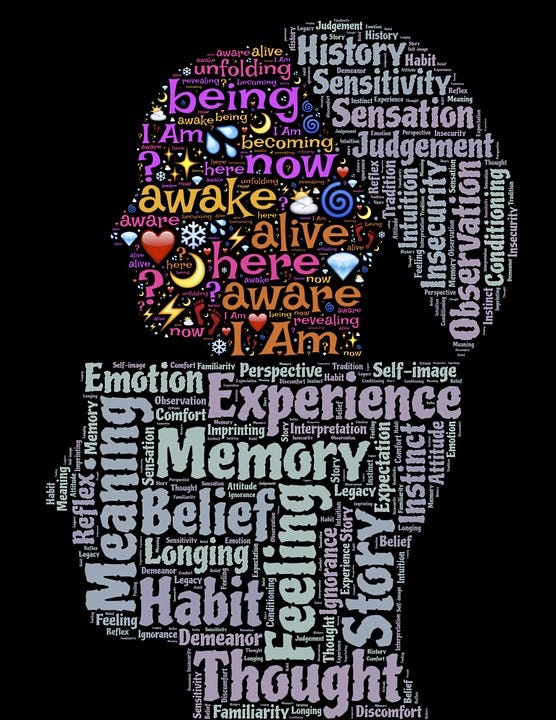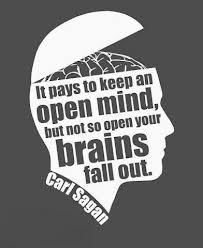In a world teeming with diverse perspectives, the essence of tolerance and mutual respect shines through as individuals navigate the intricate terrain of opinion. Embracing the richness of differing viewpoints, the MEDA Foundation advocates for open dialogue rooted in the pursuit of the greater good. Recognizing the subjective nature of truth, the foundation underscores the importance of respectful engagement, encouraging individuals to gracefully accept dissenting opinions and disengage when necessary for personal peace. By fostering a culture of acceptance and understanding, we can transcend tribal affiliations and harness the power of healthy debate to propel society towards harmonious coexistence and collective growth.
Introduction
In the vast interesting world of human interaction, opinions reign supreme as the currency of discourse. Rooted in the fundamental right to individual expression, opinions serve as the lifeblood of democracy, fostering vibrant dialogue and shaping the collective conscience. However, amidst this cacophony of voices, lies the lurking danger of imposing views on others – a peril that threatens to stifle the very essence of democratic ideals. It is within this dynamic interplay of rights and responsibilities that we find ourselves called to embrace the diversity of perspectives that enrich our shared experience.
A. The Fundamental Right to Individual Opinion
At the heart of every democratic society lies the recognition of the fundamental right to individual opinion. This sacred principle, enshrined in constitutions around the world, empowers individuals to express their thoughts, beliefs, and convictions freely and without fear of censorship or reprisal. Whether through public discourse, artistic expression, or political activism, the right to hold and voice opinions forms the bedrock of a free and open society.
B. The Danger of Imposing Views on Others
Yet, for all its virtues, the right to individual opinion carries with it a weighty responsibility – the duty to respect the rights of others. The danger arises when individuals, driven by fervor or dogma, seek to impose their views on others through coercion, intimidation, or manipulation. This tendency not only undermines the autonomy and dignity of others but also erodes the very foundation of democratic governance. History is replete with examples of the catastrophic consequences of ideological tyranny, reminding us of the imperative to safeguard against the encroachment of authoritarianism in all its forms.
C. Embracing the Diversity of Perspectives
In the midst of this perilous terrain, lies the beacon of hope – the celebration of diversity in all its forms. Embracing the multitude of perspectives that populate our social landscape fosters a culture of inclusion, tolerance, and mutual respect. It is through the interplay of contrasting viewpoints that we gain deeper insights, broaden our horizons, and forge stronger bonds of empathy and understanding. From the bustling streets of urban centers to the quiet corners of rural communities, the tapestry of human experience is woven with the vibrant threads of diversity, beckoning us to explore, learn, and grow together.
Practical Example: The Indian Melting Pot
Consider the bustling streets of Bangalore, where a kaleidoscope of cultures, languages, and beliefs converge in a vibrant tapestry of diversity. Here, amidst the hustle and bustle of daily life, one finds a microcosm of India’s rich mosaic of perspectives. From the fiery debates in the halls of Parliament to the jovial banter of street vendors, the spirit of democracy thrives in the free exchange of ideas and the celebration of difference. It is in this melting pot of humanity that we discover the true essence of democracy – the recognition that every voice matters, and every opinion deserves to be heard.
Actionable Steps:
- Practice Active Listening: Approach conversations with an open mind and a willingness to listen attentively to the perspectives of others.
- Cultivate Empathy: Put yourself in the shoes of those whose views differ from your own, seeking to understand their experiences and motivations.
- Promote Dialogue: Create spaces for respectful dialogue and exchange, where diverse opinions can be shared and debated without fear of judgment or reprisal.
- Challenge Bias: Be mindful of your own biases and prejudices, actively seeking to confront and overcome them through education, introspection, and self-awareness.

A. Every Individual’s Unique Lens
In the vast mosaic of human experience, each individual perceives the world through a unique lens shaped by personal history, culture, and context. This diversity of perspective is beautifully captured in the timeless parable of the Blind Men and the Elephant. As the story goes, several blind men encounter an elephant for the first time and each perceives the animal differently based on the part they touch – one feeling the trunk, another the tail, and yet another the ear. Just as these blind men interpret the elephant differently, so too do we interpret the world around us through our own subjective experiences.
B. The Subjectivity of Truth
Central to our understanding of opinion is the recognition of the inherent subjectivity of truth. This notion is eloquently explored in Plato’s Allegory of the Cave, where prisoners are chained inside a cave and perceive reality only through shadows cast on the wall by passing objects. When one prisoner is freed and sees the outside world, he struggles to convey his newfound knowledge to his fellow captives, who remain fixated on the shadows. Plato’s allegory serves as a powerful reminder of the limitations of our perception and the elusive nature of objective truth.
C. Respecting Differing Interpretations of Facts
In today’s hyper-connected world, the proliferation of information has led to a fragmented landscape of interpretation and opinion. Nowhere is this more evident than in the realm of politics, where ideological divides and media bias often shape our understanding of factual information. Take, for example, the phenomenon of political polarization, where individuals on opposite ends of the ideological spectrum interpret the same set of facts in radically different ways. Similarly, media outlets with distinct biases may present conflicting narratives, further exacerbating the challenge of discerning objective truth from subjective interpretation.
Practical Example: Political Polarization in India
In the Indian context, political polarization has become increasingly pronounced in recent years, with partisan divides shaping public discourse and policy debates. Whether it’s contentious issues like religious identity, economic reform, or social justice, individuals often perceive the same set of facts through the lens of their political affiliations. For instance, a government’s economic policy may be hailed as a boon by its supporters and criticized as a bane by its detractors, highlighting the subjective nature of interpretation even when confronted with empirical data.
Actionable Steps:
- Cultivate Empathy: Recognize that others may perceive the world differently based on their unique experiences and perspectives.
- Seek Multiple Sources: Broaden your understanding by seeking out diverse viewpoints and sources of information, including those that may challenge your preconceptions.
- Engage in Constructive Dialogue: Foster meaningful conversations with others, focusing on listening and understanding rather than persuading or debating.
- Practice Critical Thinking: Develop the skills to critically evaluate information and discern fact from opinion, bias, and misinformation.
Nurturing Openness: The Foundation of a Flourishing Society
A. The Role of the MEDA Foundation in Fostering Open Dialogue
In the quest for a more inclusive and harmonious society, organizations like the MEDA Foundation play a pivotal role in fostering open dialogue and understanding. Founded on the principles of inclusivity and empowerment, the MEDA Foundation is committed to creating spaces where diverse voices can be heard and respected. Through its mission and initiatives, the foundation strives to bridge divides, cultivate empathy, and promote meaningful engagement among individuals and communities.
B. The Greater Good as a Guiding Principle
At the heart of the MEDA Foundation’s work lies a steadfast commitment to the greater good – the principle that decisions and actions should be guided by considerations of collective welfare and social justice. This ethos is exemplified in community decision-making processes, where stakeholders come together to address common challenges, explore innovative solutions, and shape the future of their communities. By fostering collaboration and consensus-building, these processes empower individuals to contribute to positive change and advance the common good.
C. Recognizing the Value of Dissent
In the pursuit of knowledge and progress, dissent plays a crucial role in challenging conventional wisdom, sparking innovation, and driving positive change. This truth is vividly illustrated in the history of scientific breakthroughs, where debate and disagreement have often paved the way for revolutionary discoveries. Consider, for example, the case of the heliocentric model of the solar system proposed by Copernicus, which challenged the prevailing geocentric view and revolutionized our understanding of the cosmos. By embracing dissent and encouraging constructive debate, the MEDA Foundation fosters an environment where diverse perspectives can thrive and catalyze positive transformation.
Practical Example: The MEDA Foundation’s Youth Empowerment Program
One shining example of the MEDA Foundation’s commitment to openness and empowerment is its Youth Empowerment Program, which provides young people with the tools, resources, and support they need to become agents of change in their communities. Through workshops, mentorship, and community projects, participants learn to engage with diverse perspectives, build consensus, and effect positive change. By empowering youth to speak out, listen actively, and collaborate effectively, the program embodies the foundation’s vision of a more inclusive and equitable society.
Actionable Steps:
- Create Safe Spaces: Establish forums and platforms where individuals feel comfortable expressing their opinions and engaging in dialogue.
- Promote Diversity: Ensure that diverse voices are represented and heard in decision-making processes, recognizing the value of different perspectives.
- Encourage Collaboration: Facilitate opportunities for individuals and groups to come together, collaborate, and work towards common goals.
- Embrace Disagreement: View dissent as an opportunity for growth and learning, fostering an environment where constructive debate is encouraged and respected.
By embracing the principles of the greater good, recognizing the value of dissent, and empowering individuals to contribute to positive change, we can create a more vibrant, resilient, and compassionate society for all.

Graceful Navigation: Finding Harmony in Disagreement
A. The Freedom to Disengage
In the digital age, the landscape of disagreement has expanded exponentially, with social media platforms serving as battlegrounds for ideological clashes. While these platforms offer unprecedented opportunities for communication and connection, they also give rise to echo chambers – virtual spaces where individuals are surrounded by like-minded voices and shielded from dissenting opinions. The phenomenon of social media echo chambers underscores the importance of the freedom to disengage – the ability to step back from contentious discussions and safeguard one’s mental and emotional well-being.
Practical Example: Social Media Echo Chambers
Consider the phenomenon of social media echo chambers, where individuals are increasingly exposed to content that reinforces their existing beliefs and biases. Algorithms designed to maximize engagement often prioritize content that elicits strong emotional responses, further exacerbating polarization and reinforcing tribalism. As a result, users may find themselves trapped in a bubble of like-minded opinions, insulated from alternative perspectives and dissenting voices. The freedom to disengage allows individuals to break free from these echo chambers, seek out diverse viewpoints, and cultivate a more nuanced understanding of complex issues.
B. Respecting Personal Boundaries
Navigating disagreements with grace also requires respecting personal boundaries and recognizing the psychological impact of conflicting opinions. While healthy debate can stimulate critical thinking and intellectual growth, it can also trigger feelings of anxiety, frustration, and even hostility. Research has shown that exposure to opposing viewpoints can activate the brain’s threat response system, leading to heightened stress levels and diminished cognitive functioning. By acknowledging the psychological impact of conflicting opinions and honoring personal boundaries, we can create a more empathetic and supportive environment for constructive dialogue.
Reference: Psychological Impact of Conflicting Opinions
Studies have demonstrated that exposure to conflicting opinions can evoke strong emotional reactions and cognitive dissonance, prompting individuals to either withdraw or become defensive. This phenomenon, known as the backfire effect, highlights the complexity of navigating disagreements in a constructive manner. By acknowledging the psychological vulnerabilities inherent in the process of confronting differing viewpoints, we can approach disagreements with greater sensitivity and empathy, fostering a culture of mutual respect and understanding.
C. Choosing Constructive Engagement over Conflict
Ultimately, navigating disagreements with grace requires choosing constructive engagement over conflict – a commitment to dialogue, empathy, and compromise. Diplomatic negotiations offer a powerful example of this principle in action, where opposing parties come together to address complex issues and find mutually beneficial solutions. By prioritizing dialogue, active listening, and collaborative problem-solving, diplomats are able to overcome entrenched positions, bridge divides, and build sustainable peace agreements.
Practical Example: Diplomatic Negotiations and Compromise
Consider the historic diplomatic negotiations that led to the signing of the Paris Agreement on climate change. Despite significant differences in priorities and perspectives among participating countries, diplomats engaged in intensive negotiations to reach a consensus on key issues. Through compromise and cooperation, they were able to secure a landmark agreement that set ambitious targets for reducing greenhouse gas emissions and mitigating the impacts of climate change. The success of the Paris Agreement serves as a testament to the power of constructive engagement in resolving complex global challenges.
Actionable Steps:
- Practice Mindful Engagement: Approach disagreements with mindfulness and self-awareness, recognizing the potential impact on your mental and emotional well-being.
- Set Healthy Boundaries: Establish clear boundaries for yourself in online and offline interactions, knowing when to disengage from contentious discussions to preserve your peace of mind.
- Cultivate Empathy: Seek to understand the perspectives of others with empathy and compassion, even when you disagree with their opinions.
- Focus on Solutions: Shift the focus of disagreements from winning arguments to finding common ground and working towards practical solutions that benefit all parties involved.
As we navigate the complexities of disagreement in an increasingly interconnected world, let us strive to approach conflicts with grace, empathy, and a commitment to constructive engagement. By honoring personal boundaries, respecting diverse viewpoints, and choosing dialogue over discord, we can foster a culture of mutual respect and understanding where disagreements serve as opportunities for growth and reconciliation.

Bridging Divides: Fostering Understanding and Connection through Dialogue
A. Understanding Tribal Affiliations and Group Dynamics
In the intricate tapestry of human interaction, tribal affiliations and group dynamics often shape our perceptions, beliefs, and behaviors. From cultural identities to ideological allegiances, our sense of belonging to various groups influences how we view the world and interact with others. Yet, amidst the complexities of group dynamics, lies the transformative power of empathy – a force capable of transcending divisions, bridging differences, and fostering reconciliation.
Anecdote: The Power of Empathy in Conflict Resolution
Consider the timeless tale of the Good Samaritan, who extends compassion and assistance to a stranger in need, regardless of their tribal or social affiliations. In a moment of crisis, the Samaritan’s empathy transcends cultural divides and societal norms, illuminating the path towards reconciliation and understanding. This simple yet profound act serves as a powerful reminder of the potential for empathy to heal wounds, build bridges, and forge connections across perceived boundaries.
B. Embracing Disagreement as an Opportunity for Growth
In the pursuit of knowledge and understanding, disagreement serves as a catalyst for intellectual growth and development. Philosophical traditions of dialectics, dating back to ancient times, emphasize the importance of engaging with opposing viewpoints in order to arrive at deeper insights and truths. By embracing disagreement as an opportunity for exploration and dialogue, we open ourselves up to new perspectives, challenge our assumptions, and expand our understanding of the world.
Reference: Philosophical Traditions of Dialectics
The philosophical tradition of dialectics, exemplified by thinkers such as Socrates, Plato, and Hegel, posits that truth emerges through the clash of opposing ideas and perspectives. Through rigorous debate and dialogue, dialecticians seek to uncover underlying contradictions, resolve conceptual conflicts, and arrive at a synthesis that transcends the limitations of individual viewpoints. This dialectical process of thesis, antithesis, and synthesis offers a framework for engaging with disagreement constructively and fostering intellectual growth.
C. Promoting Healthy Debate and Mutual Understanding
In the realm of academia, healthy debate and mutual understanding are foundational principles that underpin scholarly inquiry and discovery. Academic discourse and peer review processes provide a structured framework for engaging with differing viewpoints, critiquing arguments, and refining ideas through rigorous examination and dialogue. By promoting intellectual diversity and fostering an environment of respectful debate, academic institutions cultivate a culture of inquiry and discovery that enriches our collective understanding of the world.
Example: Academic Discourse and Peer Review Processes
Consider the peer review process in scientific research, where scholars rigorously evaluate the validity and significance of research findings before publication. Through peer review, researchers engage in constructive criticism, offer feedback, and contribute to the refinement of scientific knowledge. This collaborative process of peer review not only ensures the integrity and reliability of scholarly work but also fosters a culture of transparency, accountability, and mutual respect within the scientific community.
Actionable Steps:
- Practice Active Listening: Approach conversations with an open mind and a willingness to listen to opposing viewpoints.
- Cultivate Empathy: Seek to understand the perspectives of others with empathy and compassion, even when you disagree with their opinions.
- Engage in Constructive Dialogue: Foster meaningful conversations with others, focusing on finding common ground and working towards mutual understanding.
- Promote Intellectual Diversity: Embrace a diversity of perspectives and ideas, recognizing the value of dissent in driving innovation and progress.
As we strive to build bridges and foster understanding through dialogue, let us harness the transformative power of empathy, embrace disagreement as an opportunity for growth, and promote healthy debate and mutual understanding in all aspects of our lives. By engaging with differing viewpoints with empathy, humility, and an open mind, we can cultivate a more inclusive, enlightened, and harmonious society for future generations.

Conclusion: Embracing Diversity, Fostering Dialogue, and Embracing Harmony
A. Embracing Diversity as a Cornerstone of Societal Progress
In the grand tapestry of human existence, diversity stands as a testament to the richness and complexity of our shared experience. From the myriad of cultures, beliefs, and perspectives that populate our world, emerges the vibrant mosaic of humanity. Embracing this diversity is not merely a moral imperative but a pragmatic necessity for societal progress. It is through the interplay of contrasting viewpoints, the clash of ideas, and the synthesis of diverse perspectives that innovation flourishes, solutions emerge, and society advances.
B. Encouraging Respectful Dialogue and Open-Mindedness
At the heart of our collective journey towards understanding and connection lies the practice of respectful dialogue and open-mindedness. By engaging with others with humility, empathy, and a willingness to listen, we create spaces where diverse voices can be heard, valued, and respected. It is through the exchange of ideas, the exploration of differing viewpoints, and the cultivation of mutual understanding that we build bridges across divides and forge connections that transcend the boundaries of tribe, culture, and ideology.
C. Upholding the Principle of “Agreeing to Disagree” for Harmonious Coexistence
In a world marked by discord and division, the principle of “agreeing to disagree” serves as a guiding light towards harmonious coexistence. It is a recognition of the inherent dignity and autonomy of every individual, the acknowledgment that we may hold differing opinions and beliefs, and the commitment to peaceful cohabitation despite our differences. By embracing this principle, we create space for tolerance, acceptance, and mutual respect, laying the foundation for a more inclusive, equitable, and compassionate society.
As we embark on the journey ahead, let us hold fast to the values of diversity, dialogue, and harmony. Let us celebrate the tapestry of human experience, engage with one another with empathy and understanding, and uphold the principle of “agreeing to disagree” as we strive towards a world where every voice is heard, every opinion respected, and every individual valued. In this spirit, we can build a brighter, more hopeful future for ourselves and generations to come.

References
Parable of the Blind Men and the Elephant: This parable originates from various religious and philosophical traditions, including Hinduism, Buddhism, and Jainism. It illustrates the idea that individuals perceive reality differently based on their limited perspectives.
Plato’s Allegory of the Cave: Found in Plato’s work “The Republic,” this allegory explores the concept of enlightenment and the journey from ignorance to knowledge. It serves as a metaphor for the process of philosophical enlightenment and the challenges of perceiving objective truth.
Political Polarization and Media Bias: Numerous studies have explored the phenomenon of political polarization and its impact on public discourse. You can refer to academic articles, such as those published in journals like “The Journal of Communication” or “Public Opinion Quarterly,” that analyze the relationship between media bias, political ideology, and public opinion.
Philosophical Traditions of Dialectics: Dialectical reasoning has been central to various philosophical traditions, including those of Ancient Greece, Hegelian philosophy, and Marxist dialectical materialism. You can refer to primary texts by philosophers such as Plato, Hegel, and Marx, as well as secondary sources that analyze the role of dialectics in philosophical inquiry.
Psychological Impact of Conflicting Opinions: Research in psychology has examined the cognitive and emotional responses to conflicting opinions. You can cite studies from reputable psychological journals like “Journal of Personality and Social Psychology” or “Psychological Science” that investigate topics such as cognitive dissonance, confirmation bias, and the psychological effects of exposure to opposing viewpoints.
Academic Discourse and Peer Review Processes: Scholarly literature on academic discourse and peer review processes can be found in academic journals across various disciplines, including sociology, psychology, and education. You can refer to articles that discuss the importance of peer review in maintaining scientific rigor and the role of academic discourse in advancing knowledge.









